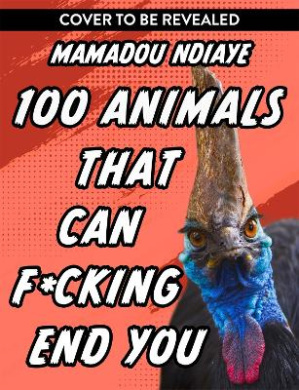Description
Bruno Latour is one of the world’s leading sociologists and anthropologists. He taught at the cole des Mines in Paris from 1982 to 2006 and is now Professor at the Institut d’tudes politiques (Sciences Po) and Director of the Sciences Po mdialab. Contents Introduction First Lecture: On the Instability of the (Notion of) Nature A mutation of the relation to the world Four ways to be driven crazy by ecology The instability of the nature/culture relation The invocation of human nature The recourse to the “natural world” On a great service rendered by the pseudo-controversy over the climate “Go tell your masters that the scientists are on the warpath!” In which we seek to pass from “nature” to the world How to face up Second Lecture: How Not to (De-)Animate Nature Disturbing “truths” Describing in order to warn In which we concentrate on agency On the difficulty of distinguishing between humans and nonhumans “And yet it moves!” A new version of natural law On an unfortunate tendency to confuse cause and creation Toward a nature that would no longer be a religion? Third Lecture: Gaia, a (Finally Secular) Figure for Nature Galileo, Lovelock: Two symmetrical discoveries Gaia, an exceedingly treacherous mythical name for a scientific theory A parallel with Pasteur’s microbes Lovelock too makes micro-actors proliferate How to avoid the idea of a system? Organisms make their own environment, they do not adapt to it On a slight complication of Darwinism Space, an offspring of history Fourth Lecture: The Anthropocene and the Destruction of (the Image of) the Globe The Anthropocene: an innovation Mente et Malleo A debatable term for an uncertain epoch An ideal opportunity to disaggregate the figures of Man and Nature Sloterdijk or the theological origin of the image of the Sphere Confusion between Science and the Globe Tyrrell against Lovelock Feedback loops do not draw a Globe Finally, a different principle of composition Melancholia, or the end of the Globe Fifth Lecture: How to Convene the Various Peoples (of Nature)? Two Leviathans, two cosmologies How to avoid war between the gods? A perilous diplomatic project The impossible convocation of a “people of nature” How to give negotiation a chance? On the conflict between science and religion Uncertainty about the meaning of the word “end” Comparing collectives in combat Doing without any natural religion Sixth Lecture: How (Not) to Put an End to the End of Times? The fateful date of 1610 Stephen Toulmin and the scientific counter-revolution In search of the religious origin of “disinhibition” The strange project of achieving Paradise on Earth Eric Voegelin and the avatars of Gnosticism On an apocalyptic origin of climate skepticism From the religious to the terrestrial by way of the secular A “people of Gaia”? How to respond when accused of producing “apocalyptic discourse” Seventh Lecture: The States (of Nature) between War and Peace The “Great Enclosure” of Caspar David Friedrich The end of the State of Nature On the proper dosage of Carl Schmitt “We seek to understand the normative order of the earth” on the difference between war and police work How to turn around and face Gaia? Human versus Earthbound Learning to identify the struggling territories Eighth Lecture: How to Govern Struggling (Natural) Territories? In the Theater of Negotiations, Les Amandiers, May 2015 Learning to meet without a higher arbiter Extension of the Conference of the Parties to Nonhumans Multiplication of the parties involved Mapping the critical zones Rediscovering the meaning of the State Laudato Si’ Finally, facing Gaia “Earth, earth!” Works Cited






